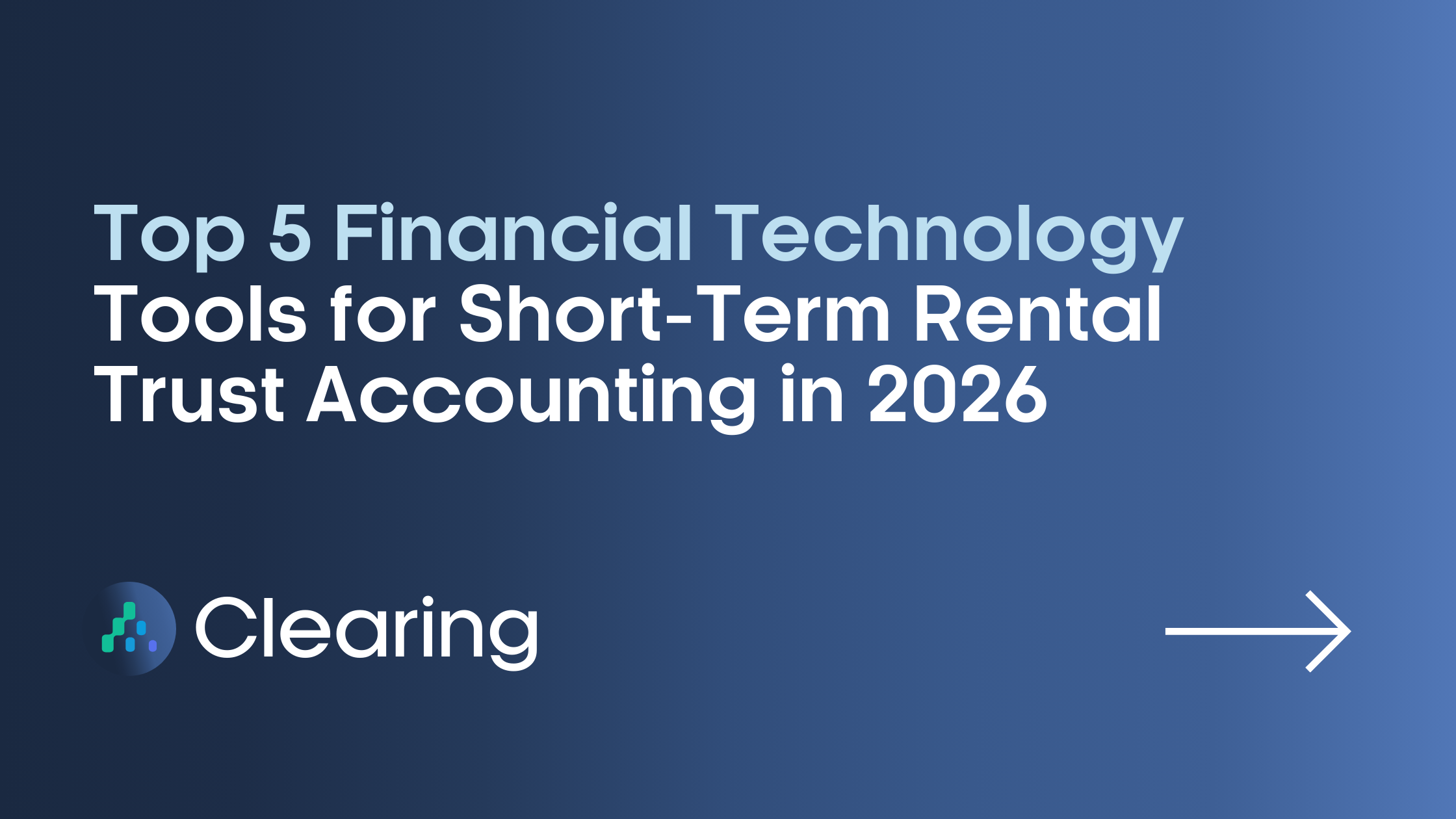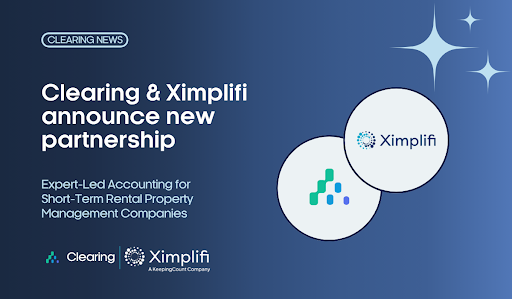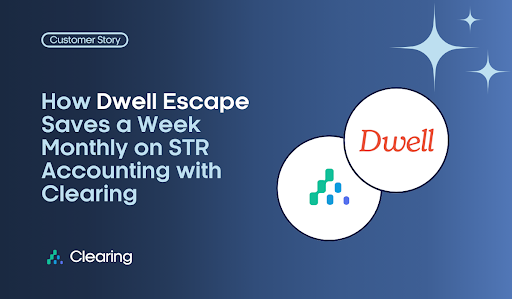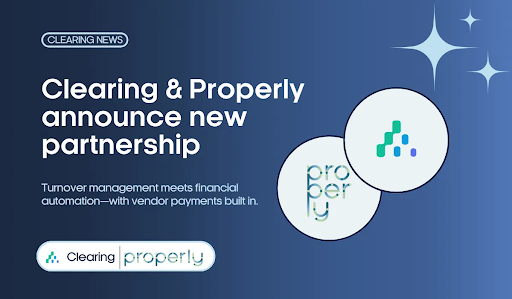The Top Benefits of Using a Trust Account for Your Real Estate Transactions
Discover the advantages of using trust accounts in real estate transactions. Learn how trust accounts enhance financial security, streamline management, and provide transparency.
June 19, 2023
Michelle
.png)
As a real estate agent or investor, you may have heard of trust accounts, but you might not know why they can be so beneficial. A trust account is a type of financial account that holds money for another person or entity. It is used to protect money going through a transaction, and in real estate transactions, it can be especially useful.

In this blog post, we will discuss the top benefits of using trust accounts for your rental transactions. Whether you are collecting rent from your tenants or buying and selling properties, you can use a trust or escrow account to ensure that all funds are tracked properly. So let's dive into the details and learn more about how they can be so beneficial for real estate investors.
What Is a Trust Account?

A trust account is a specialized financial tool that many real estate companies and investors can use to effectively manage their properties. It functions as a separate bank account, distinct from personal or business accounts, and is designed to hold and distribute funds on behalf of the property owner or beneficiary.
In essence, a real estate trust account acts as a secure repository for the income generated by your real estate investments and the funds allocated for property-related transactions. It ensures that these funds are kept separate from your personal finances, providing a clear and transparent financial structure.
The primary purpose of a trust account is to enhance financial organization and streamline management of money. By establishing individual trust accounts for each property you own, you create a dedicated space to track income, expenses, and other financial transactions associated with that specific property. This segregation of funds enables you to maintain accurate records, simplify accounting processes, and monitor the financial performance of each investment separately.
Moreover, trust accounts offer a layer of protection for your assets. As the account operates under a legal framework, it adds an additional level of security and transparency to trust funds. This separation of funds helps safeguard your assets from potential liabilities or legal claims related to personal matters or other business activities.
In summary, a trust account is a specialized bank account that real estate investors use to manage the finances of their properties separately from personal or business accounts. By utilizing trust accounts, every investor and real estate broker can streamline financial management, maintain accurate records, protect their assets, and ultimately enhance the efficiency and profitability of their real estate investments.
Why use trust accounts for real estate transactions?

When you own a real estate asset, are managing a real estate property, or are overseeing a rental, using a trust account for your money and your tenant's money can be highly beneficial. Using a trust account for your real estate transactions offers several significant benefits:
- Enhanced Financial Security: By utilizing a trust account, you create a clear separation between your personal or business finances and the funds associated with your real estate investments. This separation provides an added layer of financial security, protecting your assets from potential legal claims, creditors, or personal liabilities. It also helps mitigate risks and ensures that your property's funds are exclusively allocated for their intended purposes.
- Efficient Financial Management: Trust accounts allow for streamlined financial management of your real estate portfolio. With a separate account for each property, you can easily track income, expenses, and other financial transactions related to specific assets. This organization simplifies accounting processes, facilitates accurate record-keeping, and provides a comprehensive overview of the financial performance of each investment. It enables you to make informed decisions and optimize the profitability of your real estate ventures.
- Transparency and Compliance: Trust accounts offer transparency and accountability in your real estate transactions. As a fiduciary responsibility, the trustee overseeing the trust account ensures that the funds are managed in compliance with legal and regulatory requirements. This not only protects your interests as the beneficiary but also creates a transparent framework for financial operations. The ability to provide clear documentation of transactions and fund movements can be valuable when dealing with partners, stakeholders, or auditors, instilling confidence and trust in your real estate dealings.
Tips for Efficiently Managing a Trust Account for Your Real Estate Transactions

Managing a trust account for your real estate transactions may seem daunting, but with a few practical tips, you can streamline the process and ensure its effectiveness. Here are some investor-friendly tips for efficiently managing your real estate trust accounts:
- Familiarize Yourself with Legalities: Take the time to understand the specific rules and regulations governing property management, trust accounts, and rental agreements in your area. This knowledge will help you comply with legal requirements, safeguard your transactions, and protect the interests of all parties involved.
- Leverage Automated Solutions: Embrace technology to simplify your trust account management. Utilize automated services, such as Clearing, which offers a user-friendly platform to streamline financial operations for rental properties. By automating processes like rent collection, expense tracking, and financial reporting, you can save time, reduce errors, and focus on other critical aspects of your real estate investments.
- Establish Internal Controls: Implement robust checks and balances within your management system to ensure the proper handling of funds. By setting up an audit trail and internal accountability measures, you can minimize the risk of mismanagement or unauthorized access to funds. This practice promotes transparency, mitigates potential issues, and safeguards the financial integrity of your trust account.
- Clear Communication with Tenants: Effective communication with tenants is paramount for trust account management. Clearly communicate payment expectations, lease obligations, and any additional fees associated with the transaction. Providing tenants with a comprehensive understanding of their responsibilities fosters transparency and helps avoid misunderstandings or disputes in the future.
- Regularly Review and Update: Regularly review your trust account management system to ensure its smooth operation and compliance with evolving industry standards. Stay updated on changes in regulations, market conditions, and best practices within real estate management. This proactive approach helps you maintain transparency, efficiency, and reliability throughout your trust account management journey.
By following these investor-friendly tips, you can confidently navigate the complexities of managing a trust account for your real estate transactions. Implementing efficient practices, leveraging technology, and prioritizing clear communication will help optimize your financial operations, protect your investments, and facilitate long-term success in the real estate market.
So, how can you get started with trust accounting for real estate transactions?
Implementing trust accounting for your real estate transactions is easy when you use Clearing. All you need is some basic company information to get started, and in just a few clicks your Clearing account will be created and ready to use.
Clearing works directly with bank partners to help you get started with trust accounting with minimal work required. Instead of having to establish your own accounts, you can simply sign up for a virtual bank account with Clearing, categorize your accounts, and create as many sub-balances as you’d like. We do the work so you don’t have to.
Virtual accounts can be established for each property, market, building, or city - you decide how you want to segment your book of business and create the account structure in whichever way is meaningful for your client's funds, and you. With just a few steps, you can have any virtual account you think you need - and there is no waiting period or discussions with banks required. Scaling up virtual accounts has never been easier.
In conclusion, trust accounts offer real estate investors numerous benefits, ensuring financial security, convenience, and control over their property transactions. With the benefit of trust accounts, investors can enjoy secure rental income, streamline payment processes, and maintain transparent records.
By using trust accounts, investors and beneficiaries have the assurance that their rental income is protected. These accounts enable online transfers and payments, making transactions more efficient and convenient.
The audit trail provided by trust accounts simplifies payment tracking and verification of real estate transactions, ensuring transparency and accurate financial reporting. By utilizing trust accounts, real estate investors can confidently manage their property finances and achieve their investment goals.
Want to learn more? Schedule a Demo Today!
Clearing is a Financial Technology Company, not a bank.

.png)
.png)






.png)
.png)
.png)

.png)

.png)


.png)
.png)
.png)
%20(1).png)
%20(1).png)
%20(1).png)
.png)
%20(2).png)
%20(1).png)
%20(1).png)
.png)

.png)
.png)
.png)
%20(1).png)
.png)
.png)
.png)
.png)
.png)
.png)
.png)
%20(1).png)
.png)
.png)
.png)
%20(1).png)
%20(1).png)
%20(1).png)








.jpg)
%20(1).png)
%20(1).png)
%20(2).png)
%20(1).png)

%20(1).png)
%20(1).png)
%20(1).png)



%20(1).png)
%20(1).png)
%20(1).png)
%20(1).png)
%20(1).png)


%20(1).png)
%20(1).png)
%20(1).png)
%20(2).png)
%20(2).png)



%20(2).png)


%20(2).png)
%20(1).png)
.png)


%20(2).png)
%20(2).png)

.jpg)
.png)
.png)
.png)


